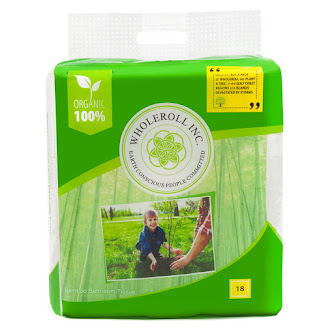Is There Plastic in your Poop?
Thursday, November 14, 2019
If you have been under the impression that flecks of plastic only pollute the air, soil and water bodies, then we are here to break the ice for you and let you know that the human body too is filled with a generous amount of plastic. This fact has been backed by studies that have proven over the time that all of our stool samples consist of an element known as microplastics. Researchers have claimed that there are about 25 of these particles in every 4-4.5 ounces of our defection.
How is plastic entering the human body?
On exploring the scopes of plastic pollution, you will find that while the environment is the direct receptor of the plastic that we use and discard from time by time without reducing, recycling and reusing, our systems too, are affected on a major scale. The plastic enters our bodies through food, and the food, in turn, absorbs these microplastics from the containers and packets that they are saved in with preservers to last a long time. The claws of plastic pollution have been unfurled in such a mechanism that even if you plan on giving up packaged food, there is still no escape from its clutches. It has been found that 90% of the salt used for cooking contain microplastics. According to the statistics submitted by National Geographic, when salt samples from the major exporters were taken for laboratory tests, out of the 39 brands, 36 were found faulty. The dimension of these plastic particles can range from anywhere between 30 to 500 microns and mostly consist of compounds such as polystyrene, polyethylene, and polypropylene. These compounds formulate a route to our systems through the plastic vessels, water bottles and containers, which when used after a long time of storing water and food in time, dissolves some of their particles in the edibles. When our stomach cannot retain these plastic elements for long as it meddles with the body's primary functions, it eliminates them through the stool.
Apart from this, the microplastic particles can also enter through foods such as fish and meat and we in turn are bound to consume these foods that haven't been filtered and checked for the presence of plastic. Although, health inspectors haven't discovered the potential risk that a man is exposed to when his stool is crammed with plastic, yet they believe that if stuck for long, they can interfere with regular contributions of the respiratory, digestive and endocrine glands long term.
What can be done?
The only way in which we can terminate the growing influence of plastic pollution is by completely cutting down its use, because even if you stop accepting plastic bags from the supermarket or choose to eat freshly cooked food in a metal bowl, there are chances that the invisible plastic elements will land on your plate and you will end up consuming it. We need mass cooperation in this case; with such unaltered use of plastic, we are not only bringing harm to ourselves and deteriorating our health quality, but affecting the marine bodies at large. However we try, we cannot claim to stand aloof without making nature an inevitable part of our lives; it is, therefore, time to eliminate plastic and look for an eco-friendly convenient option.








0 comments